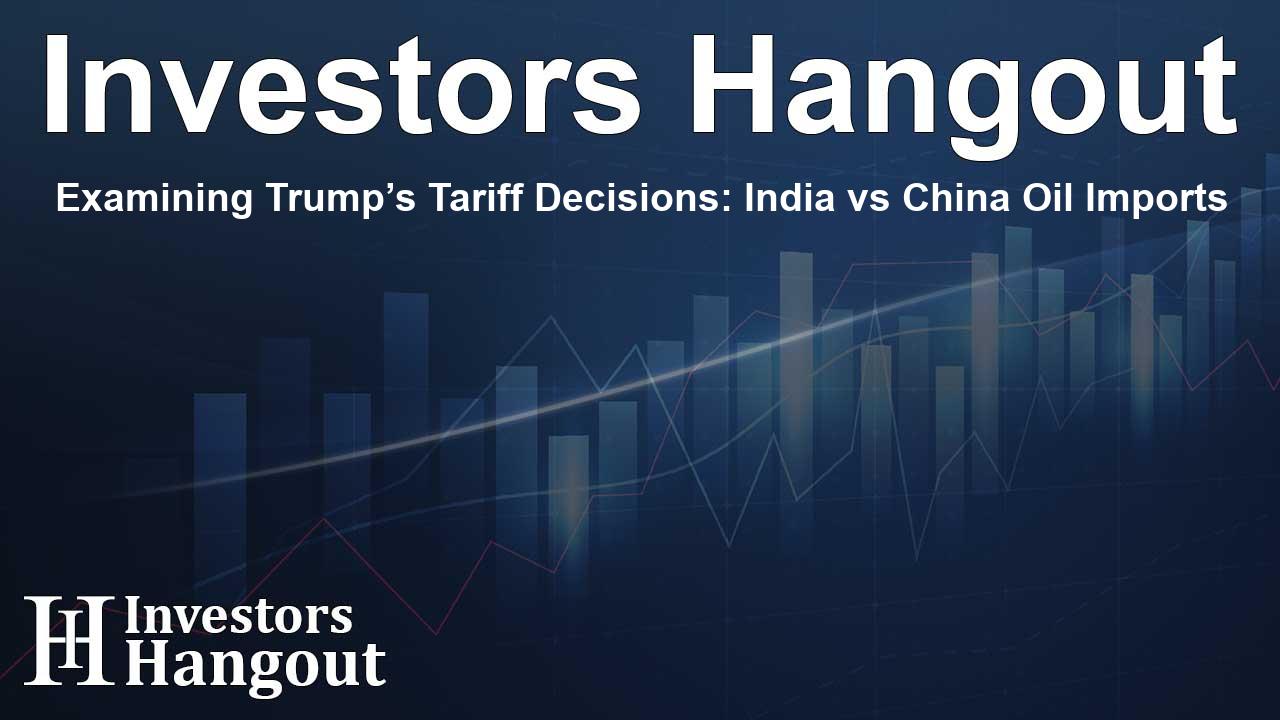Examining Trump’s Tariff Decisions: India vs China Oil Imports

Understanding the Tariff Decisions by Scott Bessent
Treasury Secretary Scott Bessent provided insights into the contrasting tariff treatment of India and China regarding Russian oil purchases. Both nations have engaged in buying oil from Russia, yet the U.S. government has opted to penalize India more severely.
Bessent Highlights India's Profits from Russian Oil
In a discussion on CNBC’s “Squawk Box,” Bessent criticized India for allegedly capitalizing on low-priced Russian oil amidst the ongoing geopolitical crisis. He referred to this practice, which involves buying cheap Russian oil and reselling it at a higher price, as “Indian arbitrage,” labeling it as morally questionable.
Bessent disclosed that India has reportedly made a staggering $16 billion surplus profit from these oil dealings, benefiting a select group of wealthy families. The country's strategy involves acquiring Russian oil at a discount due to international sanctions, refining it, and then exporting the refined products, including gasoline and diesel, to regions that have imposed sanctions on Russia.
China’s Trade with Russia Viewed Differently
When asked about China’s actions regarding Russian oil imports, Bessent suggested that the Trump administration perceived Beijing's dealings as less problematic. This is primarily due to China’s extensive, already established trade relations with Russia and its more diversified sources for oil imports, unlike India, which relies heavily on Russian supply.
Increase in India's Russian Oil Imports
Matt Smith, an oil market analyst from Kpler, pointed out a significant trend: India's imports of Russian oil surged following Russia's invasion of Ukraine in early 2022. Prior to this conflict, India's Russian oil imports were minimal, but by mid-year, India had emerged as Russia’s primary oil customer, importing around 1.5 million barrels daily.
India's Response to Tariff Measures
In reaction to President Donald Trump's decision to impose an additional 25% tariff on Indian exports—a direct repercussion for the country's engagement with Russian oil—India's Ministry of External Affairs pointed to the perceived hypocrisy in U.S. critiques. They highlighted that both the U.S. and EU maintain trade relationships with Russia, albeit not out of essential need, questioning whether the benefit of saving a few billion dollars through Russian oil purchases justifies risking $50 billion worth of exports to the U.S.
Shifting Alliances Amid Trade Tensions
With increasing pressure from U.S. tariffs, opportunities for collaboration between India and China seem to be emerging. Both nations are taking steps to navigate issues in trade, including rare earth minerals and border disputes, as they adapt to a continually evolving global landscape. India’s newfound willingness to consider an “early harvest” approach to boundary negotiations is a striking change from its previous policy.
Frequently Asked Questions
Why is Scott Bessent commenting on India and China's oil imports?
Scott Bessent has provided insights into why the U.S. has imposed stricter tariffs on India over its oil purchases from Russia, contrasting it with China’s trade behavior.
What is the basis for the tariffs imposed on India?
The tariffs are primarily a reaction to India's substantial profits achieved through the sale of Russian oil and the perceived moral implications of this practice.
How has India's dependence on Russian oil changed?
India's imports of Russian oil have dramatically increased since the Ukraine invasion, transforming the country into a significant buyer on the global market.
What did Bessent say regarding China's relationship with Russia?
Bessent implied that China's longstanding trade ties with Russia mitigate the severity of its oil imports, leading to a different response from the Trump administration.
How might U.S.-India relations evolve due to this situation?
The current trade tensions may force India to reassess its oil strategies and alliances while navigating its relationship with the U.S. amid potential economic consequences.
About The Author
Contact Olivia Taylor privately here. Or send an email with ATTN: Olivia Taylor as the subject to contact@investorshangout.com.
About Investors Hangout
Investors Hangout is a leading online stock forum for financial discussion and learning, offering a wide range of free tools and resources. It draws in traders of all levels, who exchange market knowledge, investigate trading tactics, and keep an eye on industry developments in real time. Featuring financial articles, stock message boards, quotes, charts, company profiles, and live news updates. Through cooperative learning and a wealth of informational resources, it helps users from novices creating their first portfolios to experts honing their techniques. Join Investors Hangout today: https://investorshangout.com/
The content of this article is based on factual, publicly available information and does not represent legal, financial, or investment advice. Investors Hangout does not offer financial advice, and the author is not a licensed financial advisor. Consult a qualified advisor before making any financial or investment decisions based on this article. This article should not be considered advice to purchase, sell, or hold any securities or other investments. If any of the material provided here is inaccurate, please contact us for corrections.
